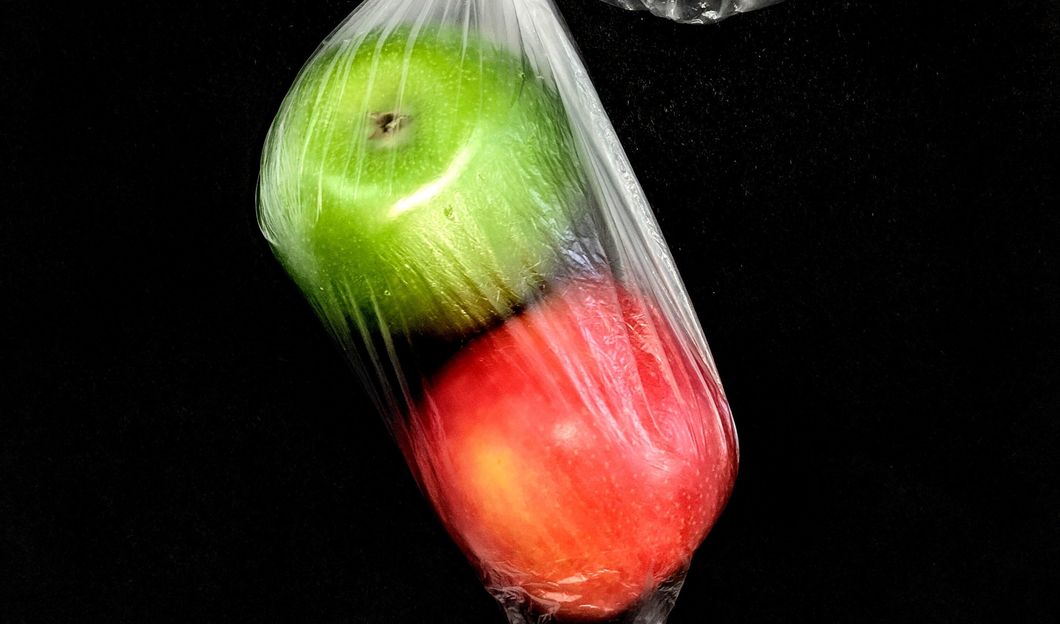Throughout the COVID-19 pandemic, news and civil rights organizations, such as The New York Times and Love Beyond Walls, have been sharing articles on social media about the cracks in the systems that govern our country. Pre-existing issues that these organizations have been fighting to bring to the surface, are more easily visible to the public during this pandemic. With the closure of local recycling centers, and the large amounts of plastic piled in my apartment awaiting the day when they re-open, I can't help but think about the larger problem at hand: our lack of access to eco-friendly products and packaging.
I'll be the first to say that I'm by no means living an eco-friendly lifestyle. I do my best to recycle and compost, but I have a long way to go. I frequently browse blogs about living a waste-free lifestyle, but the prices of many of the products and services provided to reference, don't allow me to become the environmentalist I'd like to be. I was able to save up a little money to buy cloth period pads, which helps reduce waste each month, but the cost of groceries at local markets that offer products that allow you to bring in your own reusable containers for, were daunting.

Especially during these times, when the majority of our population is relying on unemployment and stimulus checks to survive, that is if they come or if they even qualify to receive them, shopping for food products with eco-friendly packaging is the last thing on their mind. Most people can't afford to think about it; they're too busy working long hours and being underpaid to do so.
For those who can afford the time, recycling isn't even an option at the moment. Out of the ten people I interviewed about their current recycling situation, six of them are unable to recycle. In fact, seven out of the ten people I spoke to, don't normally have recycling services provided by their place of residence. Two of the interviewees didn't even have a recycling center in town.
According to Matt Simon of WIRED, even "curbside recycling programs have been suspended by dozens of county and local governments" because the process of recycling has become unprofitable for companies, due to the drop in oil prices. Plastic is made of oil, so when gas prices plummeted, so did the incentive for recycling.
This lack of easy accessibility to recycling services may seem terrifying, but what's more terrifying, is that, according to ecologist Michael SanClements in his book Plastic Purge, only about seven to eight percent of plastic in the U.S. actually gets recycled. According to SanClements, one reason for this small number is the amount of recyclables that get contaminated by being put in the wrong bins. "PET and PVC are so incompatible that one PVC bottle in ten thousand PET bottles can ruin the whole batch. So, in short: yes, you can ruin a whole batch of recycling if you are careless, and that is why it's better to leave it out when in doubt." And don't even get me started on the five percent of plastic bags that were recycled in the U.S. annually, as of 2014, when the book came out.
In short, the inability to recycle during this time only sheds light on the larger issue surrounding us: a lack of access to eco-friendly packaging, products, and procedures. Single-use plastics are already piling up, as we try to do everything we can to stop the spread of the virus. Matt Simon of WIRED also noted that the problem will continue to get worse, out of fear of reusable products being unsafe, even after the pandemic.
I attempted to start a recycling program at a restaurant I used to work for, and while it was better than nothing, customers often didn't noticed the recycling signs, or ignored them, and contaminated any of the recyclable materials that could've been collected. When my friend and I visited a restaurant in Omaha, Nebraska, I was impressed by their waste area, which had clearly marked bins for compost and recyclables, with simple instructions for the public to follow. So while some restaurants are doing their part and creating efficient, effective ways to reduce their waste, most are not.
My hope is that with the help of environmental activists and everyday heroes, we're able to bring more attention to this monster that's been created, and that change for the betterment of our earth can happen soon.
*Check out Matt Simon's WIRED article here for more information!*
https://www.wired.com/story/coronavirus-pandemic-recycling-crisis/I also recommend reading Plastic Purge by Michael SanClements. Below is a link to his website to learn more!
http://www.mikesanclements.com/plastic-purge















